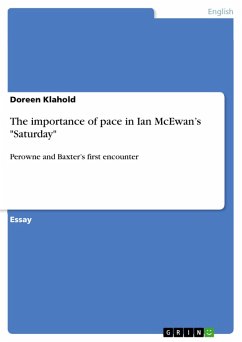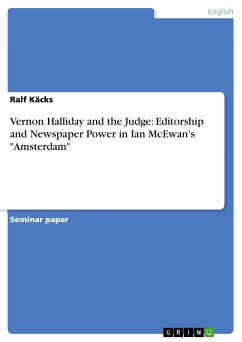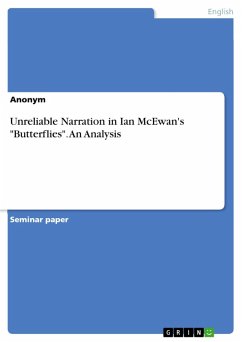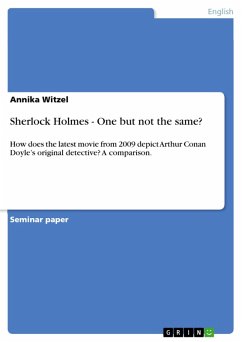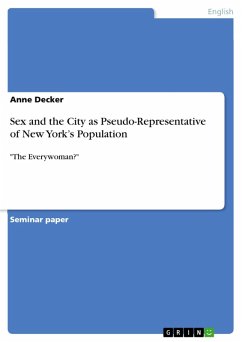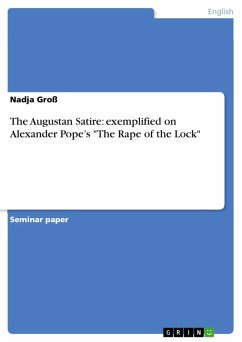Essay from the year 2011 in the subject English Language and Literature Studies - Literature, grade: 1,0, University of Paderborn, language: English, abstract: "A second can be a long time in introspection" (McEwan 80); these are Henry Perowne's words in McEwan's Saturday just before the collision of his Mercedes with the BMW of the petty criminal Baxter. However, not only Perowne experiences this apparent delay of time within the narration, but also the reader stumbles over the "rhythm of the novel" (Knapp 130), when a second is adventitiously extended to several minutes. As a novel of consciousness, Saturday lays great emphasis on the character's individual thoughts and experience of time. That is why about 279 pages are necessary to describe one day, most of it not spectacular, in the life of the neurosurgeon Henry Perowne. A phenomenon which can be particularly seen during the first encounter between Perowne and Baxter: the event is unfolded on nineteen pages, although the story time is not very long, since Perowne arrives at his squash game only a few minutes later than expected. So, how is it possible to stretch a period of time within a story to fill almost twenty pages with its narration? As Peggy A. Knapp puts it, the "pace of the plot oscillates between the quiet unfolding of memory and reflection and the sudden intrusion of external events" (130). Therefore, the relation between discourse time and story time stands out as an important stylistic device in McEwan's Saturday, which is especially striking after the car crash on University Street.
Dieser Download kann aus rechtlichen Gründen nur mit Rechnungsadresse in A, B, BG, CY, CZ, D, DK, EW, E, FIN, F, GR, HR, H, IRL, I, LT, L, LR, M, NL, PL, P, R, S, SLO, SK ausgeliefert werden.

